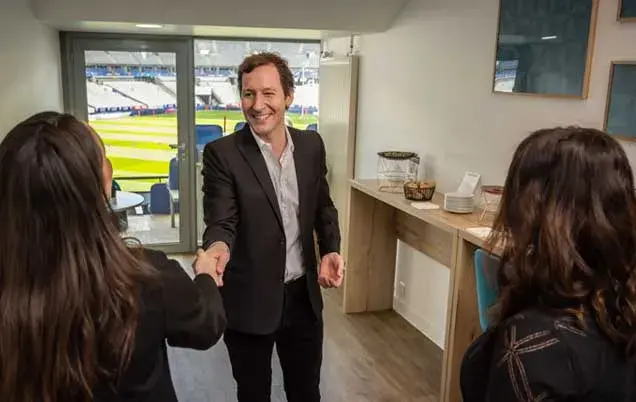
10 tips for a successful corporate hospitality package
To help make sure your corporate hospitality package is a great success, we've put together 10 tips that will give your guests an unforgettable experience at the same time as securing real benefits for your company.
What exactly is corporate hospitality?
Corporate hospitality means inviting key figures within the company to a major event (often a sports or music event) as a special guest so they can watch it from a privileged position (for example from a box or VIP suite). The event is organised outside of working hours, and can help you develop and strengthen commercial relationships, maintain your network, or show how much you value your colleagues, clients, potential customers or partners. Hospitality packages are often an opportunity to share the excitement of a great occasion in special surroundings – they provide an event within the event! To help you put together the prefect hospitality package, this article brings together 10 practical tips to make sure your day is a success.
You can get all of this advice and more in our latest guide, designed to tell you everything you need to know to put together a great hospitality package.
Before the event
1 - Get your people involved
Getting people in the relevant parts of your company (such as the commercial or key accounts department) engaged is the first key to success. If your colleagues are acting as ambassadors for the event, they will feel invested in every stage of the process, and will make an extra effort to prepare the best possible programme.
2 - Get organised with your invitations
Putting together a group of guests with a lot in common, from either a professional or personal point of view, can help to make sure conversation flows better and more naturally on the day. To make it more likely that your guests will want to attend, use a sleek invitation to an event that is important to them, and tailor the day and your promotional messages to suit their needs and interests.
3 - Gather information about your guests
You don't need us to tell you that knowing your guests inside-out is a major commercial asset. Draw up an information sheet summarising their relationship with the company, what they like, and previous or forthcoming contracts. Showing you know these details will help your guests feel appreciated when talking to you on the day.
4 - Find out about the venues
Breaking the ice isn't always easy! Talking about the event and even the venue itself can be a good way of building up the conversation. Anything the guests have in common can also be useful for bringing people together and creating a convivial atmosphere.
5 - Set objectives
When organising a hospitality event, being able to measure whether it has achieved its objectives is absolutely crucial. Set objectives as to what you expect the event to achieve and precise indicators that will allow you to measure its success, such as the proportion of box seats taken up, brand recognition rates, the number of meetings arranged following the event, etc.
On the day
6 - Give your guests a warm welcome!
Making sure all your guests get a proper welcome is a key part of any hospitality package. This includes being on time and well-prepared so you can greet them in personal on arrival, as well as making sure they are briefed on any logistical arrangements. As the name suggests, it's all about being hospitable!
7 - Facilitate the conversation
Introducing each guest with a few words about who they are and what they do will help bring the group together. Remember there is more to the day than business – it's about sharing a special event together too.
8 - Take care not to confuse public relations work with a business meeting
The main purpose of inviting existing or potential customers to a box or a VIP suite is to foster a closer relationship. Obviously, the ultimate aim is to get the deal over the line, but that is the culmination of a long process. This is definitely a case of more haste, less speed!
After the event
9 - Follow up with your guests
You know you need to consolidate the relationship – but how? One way might be to thank your guests for coming first of all, and then to gather their views later on in a face-to-face discussion or using a short questionnaire.
10 - Measure success
Assess your ROI by focusing on the objectives you set before the event. Asking questions like “did the event lead to specific action being taken?” or “did the outcome justify the investment?” can help to guide your thinking and improve your approach to corporate hospitality in the future.
As we have seen, the role of host is not confined to choosing the venue and the event – they have to be involved at every stage of the process, from start to finish. An event should be planned, not improvised! You should now have everything you need to put together a great hospitality package.
However, if you have any questions we haven't answered here, our team of advisers will be delighted to help you arrange the package that's right for you.








